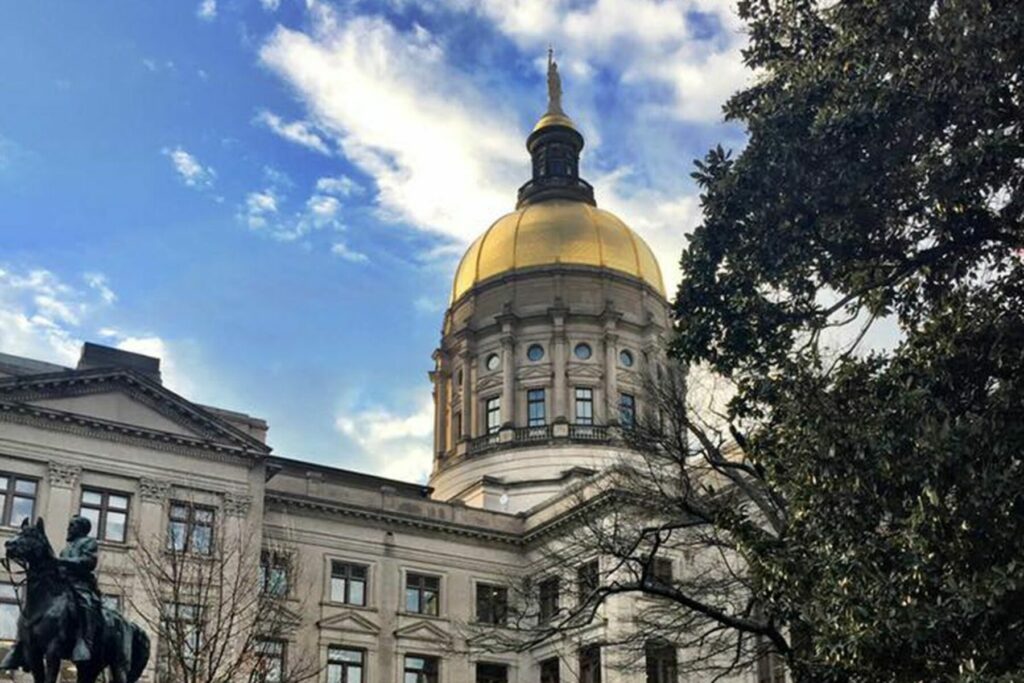
ATLANTA – Gov. Brian Kemp and the General Assembly’s budget writers vowed Tuesday to continue a cautious approach toward spending, despite the huge surplus the state has built up during the last several years.
Kemp kicked off three days of legislative hearings on the budget proposals he outlined last week by touting $5 billion in tax relief he has steered through the General Assembly and pitching his plan to accelerate additional tax cuts that took effect this month.
“We chose a smart fiscally conservative path,” Kemp told lawmakers in a remote video hookup from Switzerland, where he is attending the World Economic Forum. “We need to stay on that path.”
“There are a lot of needs around our state, but revenues are not as strong as they’ve been in the past,” added Senate Appropriations Committee Chairman Blake Tillery, R-Vidalia. “We need to be sure we’re prudent with the state’s money.”
State Economist Robert “Bob” Buschman said the nation is likely to suffer a mild recession during the first half of this year, with the U.S. Gross Domestic Product expected to decline by 0.1% during the first quarter and 0,7% during the second quarter.
While Georgia continues to fare better than the nation as a whole in key economic indicators including inflation and unemployment, Buschman noted that much of the state’s revenue growth of the last few years was fueled by capital gains. He said he expects a significant drop in capital gains this year due to an economic slowdown.
“In a down cycle, these gains can drop very quickly,” he said.
Buschman said a mild recession likely would lead to rising unemployment in Georgia, which in turn would affect the state’s tax collections. The trend already has started, with the state reporting declining tax revenues during the first half of the current fiscal year.
But Buschman said Georgia’s unemployment rate is likely to remain below the national rate, which is projected to hit 4.3% later this year.
Kemp said the pay increases he is recommending for state and university system employees as well as public school teachers should help serve as a buffer against recession.
“With the pay raises and the jobs we’re creating, that keeps people working,” he said. “We’ll be in good shape.”
